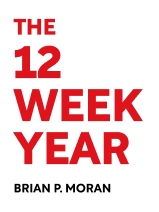

This article is an excerpt from the Shortform book guide to "The 12 Week Year" by Brian P. Moran. Shortform has the world's best summaries and analyses of books you should be reading.
Like this article? Sign up for a free trial here .
How does one become great at what they do? What is it that distinguishes great achievers from mediocre ones? Is it just a matter of talent and practice?
There’s a fine line between greatness and mediocrity when it comes to how you live your life. You maintain a mediocre level of achievement when you keep doing the same things over and over again. You start to become great the moment you make a concerted effort to push past your normal routine.
Here is what it really takes to transcend mediocrity and become truly great at what you do.
What Does It Take to Become Great?
You can be great if you can be present in the moment. But you often have so many responsibilities, it’s hard to know where to put your energy and how to get the mental downtime you need to thrive. You multitask to make sure you engage with everything you need to get done, but by engaging with everything, you aren’t truly engaging with anything.
When you spread your attention too thin over multiple directions, you aren’t fully applying yourself to any task. You’re overworked, overconcerned, and overtired. Burnout is a likely result, and in the end, you haven’t mastered anything, just become mediocre at several things. To become truly great, you need to allow your body to catch up with your mind. When you’re mentally in the same place as you are physically, you’re living in the moment. And your true potential lies within this moment.
You can’t change the past or live in the future, but that doesn’t stop you from defining your worth by some end result you believe will signify success. Greatness isn’t achieved when you reach your final destination. Greatness represents the efforts made along the journey to get there. You become great the moment you decide to do the work to reach your goal, and the end result is merely a tangible marker of your greatness.
- For instance, a salesperson who only meets her weekly quota is mediocre. A salesperson who commits to calling two or three extra people a day and spends a few extra hours each week refining her strategies is working with greatness. Those small changes will lead to significant results over time.
You have the ability to become great, and you start by striving for more, creating a plan to achieve your goals, and being disciplined in your actions. You can change your life by simply making the choice to start executing at a higher level.
The Fallacy of Work-Life Balance
Much of what challenges your ability to be present is your attempt to create a work-life balance. You struggle to find a balance between work, family, friends, community, health, and personal time, so you decide to give equal time and energy to each avenue of your life. But when you do this, you overextend yourself and become frustrated and joyless. The problem is that greatness cannot be achieved by balancing your time in each area of life. You can only become great when intentionally create an imbalance in how you spend your energy.
Different moments in life will require different amounts of energy, and there’s nothing wrong with that. The purpose of intentional imbalance is to put your energy where you want it to go, rather than feeling like you have to dole it out evenly.
Finally, don’t forget to celebrate the victories along the way. You’ll be more confident and satisfied the more you acknowledge your progress. Use that success to strengthen your belief in yourself and resolve to continue reaching ever greater heights.

———End of Preview———
Like what you just read? Read the rest of the world's best book summary and analysis of Brian P. Moran's "The 12 Week Year" at Shortform .
Here's what you'll find in our full The 12 Week Year summary :
- How to create a structured plan to rapidly accomplish goals
- Why annual goals don't work
- How to create urgency by working in 12-week increments






